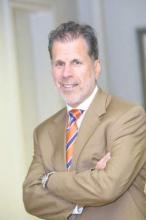Stephen M. Kohn, executive director of the National Whistleblower Center, said the Supreme Court correctly ruled on the issue.
“The legal position taken by the Chamber of Commerce and health care industry in this case was dumbfounding,” Mr. Kohn said in a statement. “Had the court agreed with the chamber and its allies – that you can bill the taxpayers for the services of a so-called doctor who was in fact unlicensed, and whose degree came from an unaccredited Internet college – then the floodgates would be opened for fraud in government contracting.”
Houston-based plaintiffs’ attorney Joel Androphy, who represents whistle-blowers, called the opinion “very favorable” for implied certification claims.
“Eliminating barriers such as the mandated condition of payment language in statutes or regulations was a proper change in direction for evaluating pleadings,” Mr. Androphy said in an interview. “If the defendant cheats, there should not be a free pass because Congress did not include magic wording in statute or regulation to support a false claims case. Materiality may be a lingering area of dispute; however the court made clear that a commonsense approach should be applied.”
On Twitter @legal_med


